FOR IMMEDIATE RELEASE: March 16, 2016 CONTACT: Juan_Pachon@menendez.senate.gov On need to meet with Cuban Human Rights and Democracy defenders: “The President should witness their bravery, listen to their stories, feel their despair, see the fear under which they live – and stand-up with them and for them.” WASHINGTON, DC – U.S. Senator Bob Menendez
FOR IMMEDIATE RELEASE:
March 16, 2016
CONTACT:
Juan_Pachon@menendez.senate.gov
On need to meet with Cuban Human Rights and Democracy defenders: “The President should witness their bravery, listen to their stories, feel their despair, see the fear under which they live – and stand-up with them and for them.”
WASHINGTON, DC – U.S. Senator Bob Menendez (D-NJ), senior member of the Senator Foreign Relations committee, delivered the following remarks on the Senate Floor ahead of President Obama’s visit to Cuba and provided a progress report on democracy and human rights on the island. Below are his remarks as prepared for delivery:
“I rise in memory of all Cuban dissidents who have given their lives in the hope of Cuba, one day, being free from the yoke of the Castro regime. It is that freedom I had hoped President Obama was referencing when he said: ‘What I’ve said to the Cuban government is – if we’re seeing more progress in the liberty and freedom and possibilities of ordinary Cubans, I’d love to use a visit as a way of highlighting that progress. If we’re going backwards, then there’s not much reason for me to be there.’
“But that is obviously not the case, which is why the Boston Globe’s headline on February 25th says it all: Obama Breaks Pledge – Will Visit Cuba Despite Worsening Human Rights.
“Instead of having the free world’s leader honor Latin America’s only dictatorship with a visit, he could have visited one of the 150 countries which he has not visited, including several in Latin America that are democracies.
“The President has negotiated a deal with the Castros, and I understand his desire to make this his legacy issue, but there is still a fundamental issue of freedom and democracy at stake that goes to the underlying atmosphere in Cuba and whether or not the Cuban people – still repressed and still imprisoned – will benefit from the President’s legacy, or will it be the Castro Regime that reaps the benefits.
“Unless the Castros are compelled to change the way they govern the island and the way they exploit its people, the answer to this won’t be any different: The Castro Regime will be the beneficiary.
“At the very least the President’s first stops should be meetings with internationally-recognized dissidents: U.S. Presidential Medal of Freedom winner, Dr. Oscar Elias Biscet; the European Union’s Sakharov prize recipients, Guillermo Farinas and Rosa Maria Paya in respect for her murdered father Oswaldo Paya who was leading the Varela Project advocating civil liberties, collecting thousands of signatures petitioning the Castro regime for democratic change as permitted under the Cuban constitution – so threatening was his peaceful petition drive that he was assassinated by Castro’s security agents.
“And he should meet with Berta Soler, at her home, in her neighborhood; With the Ladies in White, with dissidents and democracy advocates in Havana – and then that will be the front-page photograph we see next week. Only then will the message that the United States will not give-in or give-up on our commitment to a free and democratic Cuba be clear to the world and to the Cuban people.
“To leave a truly honorable mark in history, this would mean the President leaving the Castro’s cordoned-off-tourist-zone and seeing Berta Soler and her Ladies in White at their headquarters in the Lawton neighborhood of Havana, where poverty – Castro style — not opportunity, not freedom, not democracy – but poverty – created by a Stalinist state, is the umbrella under which they live.
“The President should witness their bravery, listen to their stories, feel their despair, see the fear under which they live – and stand-up with them and for them.
“He could learn of the story of Aliuska Gomez, one of the Ladies in White who was arrested this past Sunday for marching peacefully. In an article in Diario de Cuba she told her story: ‘We were subjected to a lot of violence today, said Aliuska Gomez. Many of us were dragged and beaten,” she added pointing out that this has taken place only one week before President Obama’s visit. Aliuska…related how she was taken to a police station in Mariano where she was forcibly undressed by several uniformed female officers in plain view of some males. After they had taken away all of my belongings, she said, they told me to strip naked, and I refused so they threw me down on the floor and took off all of my clothing, right in front of two men, and they dragged me completely naked into a jail cell. Aliuska was then handcuffed and thrown on the cell’s floor, naked, and left alone for forty-five minutes.’
Or how about the young Cuban dissident who met with Ben Rhodes and was arrested in Havana. It was reported on March 14th that ‘yesterday the Castro regime arrested Carlos Amel Oliva, head of the youth wing of the Cuban Patriotic Union, a major dissident organization. He is being accused of anti-social behavior. On Friday, Amel Oliva had participated in a meeting in Miami with Ben Rhodes, President Obama’s Deputy National Security Advisor. He returned to Havana on Sunday.’
“I guess that’s what Raul Castro thinks about those who meet with the President’s Deputy National Security Advisor.
“Notwithstanding their true stories, and the stories of thousands like them, the President first announced sweeping changes to America’s strategic approach to the Castro Regime in December 2014. In broad strokes, we learned of the forthcoming reestablishment of diplomatic relations – an exchange of symbols with the American flag flying over a United States Embassy in Havana and the Cuban flag flying over a Cuban Embassy in Washington.
“We learned about the process by which Cuba’s designation as a State Sponsor of Terrorism would be lifted; and, we learned about the forthcoming transformative effects of a unilateral easing of sanctions to increase travel, commerce, and currency.
“For those of us who understand this regime, we cautioned for nuance, and against those broad strokes. We asked that the Administration at least require the Castros to reciprocate with certain concessions of their own, which would be as good for U.S. national interests as for the Cuban people and for U.S.-Cuban relations.
“For example, before the President ever traveled to Burma—a country with notorious human rights abuses and with which this Administration began to engage—the U.S. first demanded, and received action by the Burmese to address their human rights record. To be sure, the Burmese government agreed to meet nearly a dozen benchmarks as part of this “action for action” engagement, including granting the Red Cross access to prisons, establishing a U.N. High Commissioner for Human Rights Office, release of political prisoners, conclusion of a cease fire in Kachin State, and ensuring international access to conflict areas.
“We asked, as the President’s Cuba policy unfolded, that they push for changes that put Cubans in control of their own political processes, economic opportunities, civil society and governance. We didn’t get them. We asked for changes that would honor America’s legacy as a champion for human rights. We didn’t get those either. We suggested changes that would ultimately bring Cuba into the community of nations, contributing to, rather than detracting from, the overall prosperity of the hemisphere. And there were none.
“But, most importantly, we asked that they remember that it is a lack of resources – not a change of heart – that slowed the Castros’ adventurism and instability-inducing support for those who would pose threats to our national interests within the Western Hemisphere.
“In essence, we were not thinking strategically. Instead, we traded strategy for tactics. And leading Cuban human rights and democracy activists have criticized U.S. policy.
“The simple truth is – deals with the Devil require the Devil to deal. Opening channels of communication controlled by the regime means nothing unless we are going to communicate our values. It means nothing if we do not champion the material changes that the Cuban people seek. It means nothing if we do not speak the language that the Castros understand – that the communist revolution has failed miserably, and it’s time to let the Cuban people decide their future.
“The Castros know it, but it’s the antiquated hallmark of the revolution and the iron-fisted rule that came from it that keeps them in power. And, until that power is truly challenged, we can expect to witness the further weakening of our leverage.
“In the meantime, the regime is already moving forward, already breathing new life into its existing repressive state systems: Cubans are being beaten, arrested, and otherwise muzzled at higher rates than ever before. The Cuban Commission for Human Rights (CCHR) has documented 1,141 political arrests by the Castro regime in Cuba during the short month of February 2016. In January 2016, the CCHR documented 1,447 political arrests. As such, these 2,588 political arrests — thus far — represent the highest tally to begin a year in decades.
“This is what happens when President Obama first announces he won’t visit Cuba unless there are tangible improvements in the respect for human rights — then crosses his own ‘red-line.’ And these are only political arrests that have been thoroughly documented. Many more are suspected.
“U.S. fugitives and members of foreign terrorist organizations still enjoy safe harbor on the island – like Joanne Chesimard, the convicted killer of New Jersey State Trooper, Werner Foerster – or Charlie Hill who killed New Mexico State Trooper, Robert Rosenbloom.
“Not a penny of the $6 billion in outstanding claims by American citizens and businesses for properties confiscated by the Castros has been repaid. Unrelenting censorship and oppression of Cuban journalists continues unscathed; and the Cuban path to liberty doesn’t include the United States Embassy.
“So what do we learn? We learn that, despite the Obama Administration’s engagement with the Castro dictatorship and increased travel to the island, repression on the island is exponentially rising. Why? Because the Castro regime, one of the most astute observers of the American political system, is rushing to take advantage of the permissive environment created by the President’s hunger for legacy and the relaxation of restrictions.
“M. President, legacy is not more important than lives. For years we’ve heard how an improvement in U.S.-Cuba relations, an easing of sanctions and an increase in travel to the island would benefit the Cuban people. A benefit not realized despite the visits and investments of millions of Europeans, Canadians, Mexicans, and South Americans.
“These assumptions are wrong. And since December 17, 2014, the President has engaged the Castro regime, offering unilateral concessions that the Castros are more than happy to accept.
“And, if that is not enough for us to at least question our Cuba policy, we are now facing a new unfolding Cuban migration crisis. The United States is faced with the largest migration of Cuban immigrants since the rafters of 1994. The number of Cubans entering the United States in 2015 was nearly twice that of 2014, some 51,000; and tens of thousands more are desperately trying to make the journey, via South and Central America. Why would Cubans flee if the promise of a better life in Cuba were on the horizon? When President Obama took office, the numbers were less than 7,000 annually.
“We hear that ‘self-employment’ – such as it is in Cuba – is growing. But the number of ‘self-employed’ workers in Cuba has actually decreased. The Cuban government today is licensing 10,000 fewer ‘self-employed’ workers than it did in 2014. In contrast, Castro’s military monopolies are expanding at record pace. Even the limited spaces in which ‘self-employed’ workers previously operated are being squeezed as the Cuban military expands its control of the island’s travel, retail and financial sectors of the economy.
“While speaking recently to a business gathering in Washington, D.C., President Obama argued how he believes this new policy is ‘creating the environment in which a generational change and transition will take place in that country.’ But the key questions is, ‘a generational change and transition’ towards what and by whom? Cuban democracy leader, Antonio Rodiles, has concisely expressed this concern – ‘legitimizing the [Castro] regime is the path contrary to a transition.’
“CNN has revealed that the Cuban delegation in the secret talks that began in mid-2013 with U.S. officials in Ottawa, Toronto and Rome, and which led to the December 17th policy announcement, was headed by Colonel Alejandro Castro Espin. Colonel Castro Espin is the 49-year old son of Cuban dictator Raul Castro.
“In both face-to-face meetings between President Obama and Raul Castro this year — first at April’s Summit of the Americas in Panama City and just last month at the United Nations General Assembly in New York — Alejandro was seated (with a wide grin) next to his father. Alejandro holds the rank of Colonel in Cuba’s Ministry of the Interior, with his hand on the pulse and trigger of the island’s intelligence services and repressive organs. It’s no secret that Raul Castro is grooming Alejandro for a position of power.
“Sadly, his role as interlocutor with the Obama Administration seeks to further their goal of an intra-family generational transition within the Castro clan similar to the Assad’s in Syria and the Kim’s in North Korea. And we know how well those have worked out. To give you an idea of how Colonel Alejandro Castro views the United States, he describes its leaders as ‘those who seek to subjugate humanity to satisfy their interests and hegemonic goals.’
“But, of course, it also takes money to run a totalitarian dictatorship, which is why Raul Castro named his son-in-law, General Luis Alberto Rodriguez Lopez Callejas, as head of GAESA, which stands for Grupo de Administracion Empresarial, S.A or translated Business Administrative Group. GAESA is the holding company of Cuba’s Ministry of the Revolutionary Armed Forces, Cuba’s military.
“It is the dominant driving force of the island’s economy. Established in the 1990s by Raul Castro, it controls tourism companies, ranging from the very profitable Gaviota S.A., which runs Cuba’s hotels, restaurants, car rentals and nightclubs, to TRD Caribe S.A., which runs the island’s retail stores. GAESA controls virtually all economic transactions in Cuba.
“According to Hotels Magazine, a leading industry publication, GAESA (through its subsidiaries) is by far the largest regional hotel conglomerate in Latin America. It controls more hotel rooms than The Walt Disney Company. As McLatchy News explained a few years back, ‘Tourists who sleep in some of Cuba’s hotels, drive rental cars, fill up their gas tanks, and even those riding in taxis have something in common: They are contributing to the [Cuban] Revolutionary Armed Forces’ bottom line.’
“GAESA became this business powerhouse thanks to the millions of Canadian and European tourists that have and continue to visit Cuba each year. The Cuban military-owned tourism company, Gaviota Tourism Group, S.A., averaged 12 percent growth in 2015 and expects to double its hotel business this year.
“These tourists have done absolutely nothing to promote freedom and democracy in Cuba. To the contrary, they have directly financed a system of control and repression over the Cuban people all while enjoying cigars made by Cuban workers paid in worthless pesos, and having a Cuba Libre, which is an oxymoron, on the beaches of Varadero.
“Yet, despite the clear evidence, President Obama wants American tourists to now double GAESA’s bonanza – and, through GAESA, strengthen the regime.
“An insightful report by Bloomberg Business also explained how, ‘[Raul’s son-in-law, General Rodriguez] is the gatekeeper for most foreign investors, requiring them to do business with his organization if they wish to set up shop on the island…If and when the U.S. finally removes its half-century embargo on Cuba, it will be this man who decides which investors get the best deals.’ In other words, all of the talking points about how lifting the embargo and tourism restrictions would somehow benefit the Cuban people are empty and misleading rhetoric.
“In addition, internet “connectivity ranking” has dropped. The International Telecommunication Union’s (ITU) Measuring the Information Society Report for 2015, the most reliable source of data and analysis on global access to information and communication. ITU has dropped Cuba’s ranking to 129 from 119. The island fares much worse than some of the world’s most infamous suppressors, including Syria (117), Iran (91), China (82) and Venezuela (72).
“In Cuba, religious freedom violations have increased. According to the London-based NGO, Christian Solidarity Worldwide, last year 2,000 churches were declared illegal and 100 were designated for demolition by the Castro regime. Altogether, CSW documented 2,300 separate violations of religious freedom in 2015 compared to 220 in 2014.
“And, if that is not enough, Castro reneged on the release of political prisoners and visits by international monitors. Most of the 53 political prisoners released in the months prior and after Obama’s December 2014 announcement have since been re-arrested on multiple occasions. Five have been handed new long-term prison sentences.
“Meanwhile, Human Rights Watch noted in its new 2016 report, ‘Cuba has yet to allow visits to the island by the International Committee of the Red Cross or by U.N. human rights monitors, as stipulated in the December 2014 agreement with the United States.’ These were the conditions that prompted Congress, over the course of our long history with Cuba, to pass successive laws to build on — not detract from — Executive Orders that created the embargo.
“I stand with thousands of Cuba’s civil society leaders, dissidents, journalists, and everyday men and women who long for the day when the freedom we enjoy in our great country extends to theirs. As long as I have a voice, they will have an ally to speak truth to power against this dictatorship, and against any effort to legitimize it or reward it.
“We must realize the nature of the Castro regime won’t be altered by capitulating on our demands for basic human and civil rights. If the United States is to give away its leverage, it should be in exchange for one thing, and one thing only, a true transition in Cuba.
“And, as for the latest announcements from the Administration, I stand against any rollback of the statutory provisions that codified Cuba sanctions. We learned this week that the Administration has cleared the way for individual travel to Cuba outside the auspices of a group or organization. This is tourism, plain and simple.
“We learned this week that the Administration has cleared the way for Cubans – athletes, artists, performers, and others – to earn salaries in the United States. Unfortunately, much if not all of those salaries will go back to the regime as they must pay the regime most of their earnings.
“We learned that Americans may purchase Cuban origin products and services in third countries – the cigars, alcohol, and basic products produced by a system of slave labor that funnels proceeds to one place – the regime’s pockets. When it comes to banking and financial services, we will now permit the U.S. financial system to facilitate the flow of these and other proceeds directly to the regime.
“The Administration will allow the Cuban government, which profits from the sale of intelligence, to export Cuban-origin software to the United States – never mind that the Cuban government aggressively monitors the internet activity of Cuban dissidents and sensors users on the island – and permit direct shipping by Cuban vessels.
“These ‘significant amendments’ to the Cuban Assets Control Regulations (CACR) and the Export Administration Regulations (EAR) – cornerstones of implementation of United States sanctions against the Castro regime — announced on Tuesday create new opportunities for abuse of permitted travel. They authorize trade and commerce with Castro monopolies, and permit the regime to use United States dollars to conduct its business.
“They are unilateral concessions, requiring no changes from the Castro regime to the political and economic system under which the Castros exploit the lives and labor of Cuban nationals. In meetings late last week, I warned officials at the Department of Treasury that these changes come up to the line and in some cases cross it with respect to statutory authority.
“Their actions are inconsistent with existing statutes and incompatible with the intent of Congress as expressed through those statutes. I should know as I was one of the authors of the Libertad Act when I served in the House of Representatives. In my view, at the end of the day, this is a unilateral transfer of the little remaining leverage that the Administration hadn’t given away prior to this week’s announcement.
“With these steps, I believe Commerce and Treasury have set the stage for legal action against the Administration. Congress has authorized categories of travel to Cuba, but none of the categories were tourism or commerce-for-commerce’s-sake with the regime.
“The President has said that his Cuba policy ‘helps promote the people’s independence from Cuban authorities.’ But it does not.
“And yet, this week, in what would seem to contravene the letter and spirit of U.S. law – the Administration will reportedly allow the regime to use U.S. dollars in international financial transactions and a U.S. hotel company to partner with a Cuban military conglomerate run by the Castro family. Let’s be clear, it’s not the Cuban people who are eager and willing to shuffle dollars through BNP Paribas, INB Group, and HSBC Bank. Only the regime is willing and eager to do so.
“As for the reports that Starwood-Marriott is looking for arrangement with the regime – with the blessing of the Administration – it would be an agreement with a subsidiary of GAESA, the Cuban military conglomerate run by Raul Castro’s son-in-law, General Luis Alberto Rodriguez Lopez-Callejas. It would be an agreement to manage a hotel for the Cuban military. Among those considered is Havana’s swanky hotel Saratoga, which has been twice confiscated by the Castro regime – an agreement by which employees are hired by the regime’s state employment agency in violation of international labor laws.
“So I ask – How does allowing U.S. companies to do business with the Castro regime – let alone the Castro family itself – ‘promote the Cuban people’s independence from the authorities,’ as the President has said? This breathes new life into the Castro’s repressive state systems. That new life means one thing – the repressive system will continue without changes.
“M. President, next week, when we anticipate that we will see a photograph of the President of the United States laughing and shaking hands with the only dictatorship in the Western Hemisphere, I will be thinking of Berta Soler of the Ladies in White and her fellow human rights and democracy advocates, when she testified before Congress last year. She said in her testimony: ‘Our demands are quite concrete; freedom for political prisoners, recognition of civil society, the elimination of criminal dispositions that penalize freedom of expression and association and the right of the Cuban people to choose their future through free, multiparty elections.’
“Those are the words of freedom. That is the legacy we should work toward until the Cuban people are finally free.”

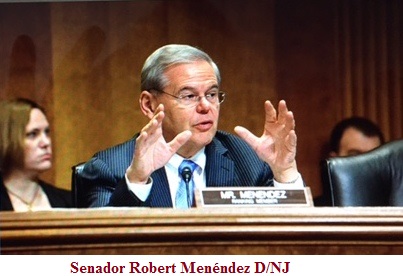
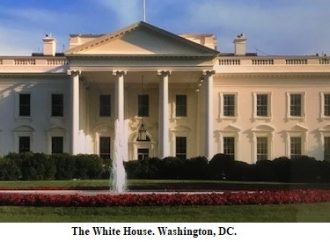
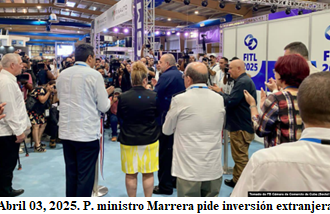
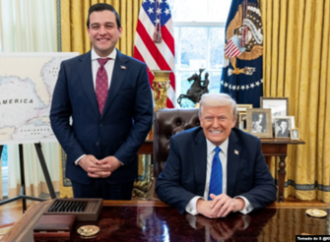


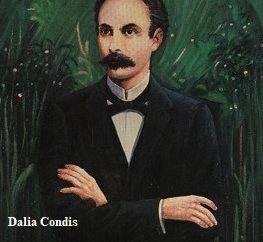
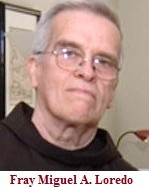

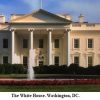

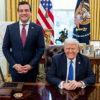



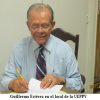

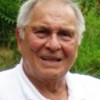

Leave a Comment
Your email address will not be published. Required fields are marked with *